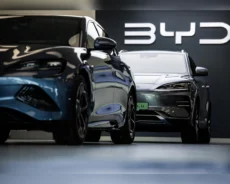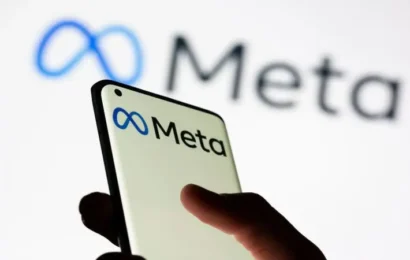In a striking public exchange that reignites tensions between two of the most polarizing figures in American politics and business, Elon Musk has firmly rejected what appeared to be a conciliatory gesture from President Donald Trump. The billionaire entrepreneur insists his companies receive no special subsidies from the federal government, directly contradicting Trump’s claims and signaling that any potential détente between the two remains elusive.
The clash unfolded on social media, where Musk responded to a post by Trump on Truth Social, in which the president stated he had no intention of “destroying” Musk’s companies by removing what he described as “large-scale subsidies.” Musk’s reply was swift and unequivocal: “The ‘subsidies’ he’s talking about simply do not exist”.
A Feud Rekindled
The relationship between Musk and Trump has been anything but stable. Once allies, the two have drifted into a public feud marked by sharp criticisms and political jabs. Musk, who owns X (formerly Twitter), has used the platform to challenge Trump’s policies and even made controversial remarks about the president’s alleged ties to the Jeffrey Epstein investigation—a topic that continues to stir public debate.
Trump’s latest post seemed to be an attempt to ease tensions. “Everyone is stating that I will destroy Elon’s companies by taking away some, if not all, of the large-scale subsidies he receives from the U.S. government. This is not so!” he wrote. “I want Elon to THRIVE like never before”.
But Musk wasn’t buying it.
Musk’s Rebuttal: No Handouts, Just Results
In his response, Musk emphasized that his companies—Tesla, SpaceX, and others—do not benefit from preferential treatment. He pointed out that SpaceX won its NASA contracts by outperforming competitors in both cost and quality. “SpaceX won the NASA contracts by doing a better job for less money,” Musk stated. “Moving SpaceX’s contracts to other aerospace companies would leave astronauts stranded and taxpayers on the hook for twice as much!”
He also took aim at Trump’s energy policies, accusing the administration of dismantling support for sustainable energy while maintaining subsidies for fossil fuels. Musk claimed that Trump had “already removed or put an expiry date on all sustainable energy support while leaving massive oil & gas subsidies untouched”.
The EV Tax Credit Controversy
One of the most contentious points in the Musk-Trump feud is the $7,500 federal EV tax credit, which was scrapped under Trump’s administration. Musk has long argued that this move disproportionately hurt Tesla, which had already reached the cap for the credit due to its early success in electric vehicle sales.
While some automakers continued to benefit from the credit, Tesla was left out, prompting Musk to assert that his company was being penalized for leading the EV revolution. Trump’s recent comments appear to be an attempt to walk back that perception, but Musk’s response suggests the damage has already been done.
Epstein Allegations and Political Fallout
The feud took a darker turn last month when Musk posted—and later deleted—a tweet alleging that Trump’s name appeared in the Epstein files. Musk claimed this was the reason the administration had not made the documents public. Although he later expressed regret for the post, saying it “went too far,” the controversy has continued to simmer.
A recent Wall Street Journal report added fuel to the fire, stating that Attorney General Pam Bondi had informed Trump in May that he was named multiple times in the Epstein files. Musk has remained silent on that report, but many observers believe it validates his earlier claims.
Trump, meanwhile, has tried to shift the narrative, calling the Epstein investigation a “scam” and a “hoax” perpetuated by “Radical Left Democrats.” He urged for the release of Grand Jury Files, claiming that innocent people should not be hurt, but that the truth must come out.
Musk’s Continued Pressure
Despite Trump’s overture, Musk shows no signs of backing down. He responded “Exactly” to a post suggesting that the Epstein videos should be reviewed and perpetrators identified. The post called for transparency and accountability, echoing Musk’s earlier demands for the release of the Epstein list.
This exchange highlights Musk’s willingness to challenge political figures, even those with whom he once shared common ground. It also underscores his belief in transparency and meritocracy—principles he claims guide his business decisions and public statements.
The Bigger Picture: Business, Politics, and Public Perception
The Musk-Trump feud is more than a personal spat—it’s a reflection of the broader tensions between tech entrepreneurs and traditional political power structures. Musk represents a new breed of business leader, one who is unafraid to speak out, challenge norms, and disrupt industries. Trump, on the other hand, embodies a populist approach to governance, often clashing with the tech elite.
Their conflict touches on key issues: government subsidies, energy policy, space exploration, and the role of social media in shaping public discourse. It also raises questions about how much influence billionaires should wield in political debates—and whether their platforms should be used to settle scores.
What Comes Next?
With both men doubling down on their positions, a reconciliation seems unlikely. Musk continues to push for transparency in the Epstein investigation, while Trump defends his record and denies any wrongdoing. The public, meanwhile, watches as two of the most influential figures in America trade barbs across digital platforms.
For Musk, the message is clear: his companies stand on their own merit, and he won’t accept political favors or threats. For Trump, the challenge is to maintain credibility while navigating a scandal that refuses to fade.
And for the rest of us? We’re witnessing a high-stakes drama that blends business, politics, and personal rivalry—one tweet at a time.















